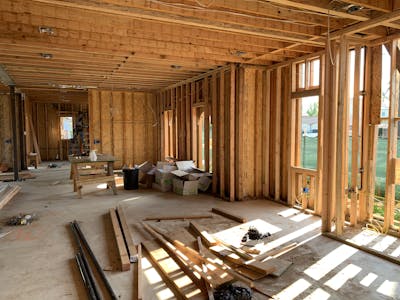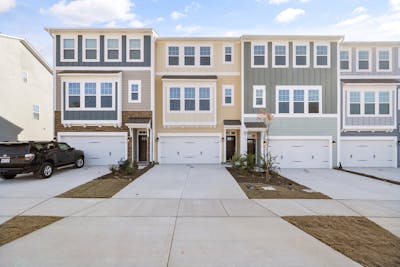A new national report has spotlighted North Carolina as having some of the country’s most landlord-friendly laws, raising concerns about tenant rights as private equity firms increasingly dominate the state’s rental market.
Get a Free Virtual Rental Evaluation Plus a Custom Cost Quote
Private Equity’s Growing Grip on NC Housing
The Private Equity Stakeholder Project (PESP) released findings showing that private equity firms now own at least 20% of apartments in North Carolina, including thousands of units in Wilmington. These firms use pooled investor capital to purchase properties, often implementing rent increases and cost-cutting measures before selling for profit.
According to the report, private equity has invested most heavily in Sunbelt states like North Carolina—the same regions experiencing rapid population growth but maintaining the weakest tenant protection laws.
Why NC Tops the “Landlord-Friendly” List
North Carolina earned the top spot on RealWealth’s 2025 list of landlord-friendly states due to several factors:
Unlimited Rent Control: Landlords can set and adjust rents without any legal limitations, as the state has no rent control laws.
High Security Deposits: Property owners can charge security deposits up to 1.5 times the monthly rent.
Fast-Track Evictions: Landlords can begin eviction proceedings with just five days’ notice for late rent payments.
The Human Cost: When Tenants Pay Full Rent for Uninhabitable Conditions
The state’s weak tenant protections became starkly apparent after Hurricane Helene, when Western North Carolina tenants were charged full rent despite losing access to water and power. This situation highlighted the urgent need for stronger habitability requirements.
“It is a landlord’s responsibility to provide a habitable environment for a tenant,” said NHC Rep. Deb Butler, who recently co-sponsored House Bill 879 requiring rental properties to provide adequate air conditioning.
“Gone are the days when you could survive a coastal North Carolina summer without air conditioning,” Butler explained. “Without air conditioning, it’s just not habitable for the majority of the year.”
What Advocates Are Calling For
Both national and local organizations are pushing for comprehensive reform:
National Recommendations (PESP):
Local Push for Change:
The North Carolina Tenants Union supports a “Tenant Bill of Rights” that would strengthen habitability requirements and prevent health hazards, including protection from extreme temperatures.
The Lobby Factor: Industry Pushback
Efforts to strengthen tenant protections face significant opposition from well-funded industry groups. The National Apartment Association and National Multifamily Housing Coalition—whose members include private equity-backed companies like Greystar—have successfully lobbied against similar reforms in other states.
These groups recently applauded federal rollbacks of tenant protections for properties with government-backed financing, including the elimination of 30-day notice requirements for rent increases and lease expirations.
Federal Connections and Conflicts
The housing issue extends to federal policy, where Trump appointee Bill Pulte now leads the Federal Housing Finance Agency. Pulte has significant financial ties to the housing industry through his family’s PulteGroup, one of the nation’s largest homebuilders with extensive Cape Fear region developments.
His private equity firm, Pulte Capital Partners, has purchased millions of dollars worth of PulteGroup homes to rent out, creating potential conflicts as he oversees policies affecting government-backed housing loans.
Rental Investor Featured News & Posts
What This Means for North Carolina Renters
For the thousands of North Carolinians struggling with rising rents and deteriorating living conditions, these findings underscore the urgent need for policy change. As private equity continues to consolidate rental housing ownership, tenants face increasingly powerful corporate landlords with minimal legal oversight.
The question remains whether North Carolina lawmakers will respond to growing calls for tenant protection reforms, or if the state will continue to prioritize landlord interests over renter rights in one of the nation’s fastest-growing housing markets.
To find out more, visit Financial watchdog group cites NC among states with weakest tenant protection laws | Port City Daily.















